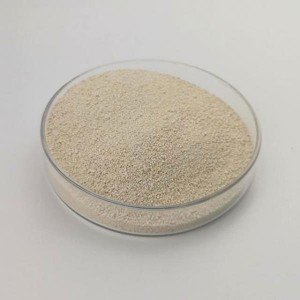Lysine is closely related to animal growth, and its most important physiological function is to participate in the synthesis of body proteins. Lysine can not only regulate the metabolic balance of the body, promote the synthesis of fatty acids in cells, but also enhance the secretion of gastric juice, enhance appetite, and promote the growth and development of young organisms. Meanwhile, lysine can enhance calcium absorption and accelerate bone growth. Lysine deficiency may lead to anorexia, nutritional anemia, central nervous system damage, and developmental disorders, which can cause protein metabolism disorders and growth disorders. Therefore, lysine is an essential amino acid in animal daily life.
However, human and mammalian organisms are unable to synthesize lysine on their own and must be supplemented from food. Lysine is abundant in animal foods (such as lean meat, fish, shrimp, crabs, shellfish, eggs, and dairy products), legumes (including soybeans, mixed beans and their products), nuts (almonds, hazelnuts, peanut kernels, pumpkin kernels), and other foods, while its content in cereal foods is very low and easily destroyed during processing.
Due to the diversity of diet, humans can naturally supplement their daily diet with high lysine content foods such as meat, eggs, milk, seafood, beans, and nuts. However, poultry and livestock in aquaculture need to control and balance the proportion of various amino acids to prevent nutrient shortages or mutual antagonism between elements. Among them, lysine plays a very important role in mammalian pig farming.
Lysine is the first limiting amino acid in pigs, which means it is the amino acid that cannot be synthesized on its own during pig growth and has the highest intake demand. It is the most important nutritional factor to consider in pig breeding diets. In the traditional soybean meal corn formula, due to the presence of soybean meal as a pressing product, its lysine content is naturally sufficient and does not require additional addition; But in another type of protein formula in the United States – DDGs formula, lysine is an important nutritional element that must be added.
DDGs, also known as dry distiller’s grains containing soluble solids, are products of corn alcohol production. The protein content of DDGs is above 26%, so they can be used as protein feed additives and are the main substitute for soybean meal in the US aquaculture industry when using protein feed. In fact, DDGs contain certain nutrients such as sugars (measured by nitrogen-free extracts), and they can also serve as energy feed. However, compared to soybean meal, due to the fact that DDGs are prepared from grains and naturally lack lysine, they must be supplemented with additional additives when used as feed for mammals.
Therefore, when using DDGs as a source of protein supply in feed formulas, the addition of lysine is essential, and the cost of the formula is determined by both the price of DDGs and lysine.
Post time: Mar-25-2024
